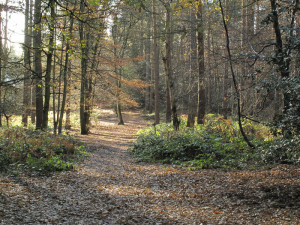And so this is Xmas, as somebody famous once wrote. At best I used to feel ambivalent about this time of year, but most often I just felt a deep sense of aversion and loathing as my energy trails away and depression and anxiety take hold. Some might say that this pattern reveals a failure in my Buddhist practice – they might be right, but who knows for sure?
For over two decades this was the way. I would watch the subtle decay of summer’s beauty into autumn’s golden tones, and the subsequent shortening of the days as autumn relinquished the green king to the icy grip of winter. For the longest time this experience was akin to standing on the shore watching a tsunami approach. Completely helpless to defend against the swell of depression and anxiety that accompanies this time of year.
Conventional medicine always indicated pills and therapies aimed at building coping strategies and fighting, rather than understanding the condition at its deepest level. It was a case of pressing my tongue against the palette of my mouth and persevering. My previous practice in the Nichiren tradition did little other than lower the blast shield and allow me to run headlong at my challenges while still completely out of control internally. Clearly, I was practicing wrongly – or so it was intimated by others. As long as I kept chanting, taking the pills and denying my difficulty, it just grew inside of me like a canker, hardening and solidifying into a black impenetrable seed of unhappiness.
I’m glad to say that silent meditation, more than any other practice, has allowed me to accept depression as a part of my life. This isn’t acquiescence in the sense of hopeless defeat, though. It is an acceptance that there is a problem, and that it is real, and it needs to be taken care of non-violently. While depression is never a welcome guest, I also don’t slam the door on it either by denying its existence.
Instead of seeing the onset of winter like a tsunami, I now imagine myself as the cartoon character Wile E. Coyote, seeing the Road Runner approaching, trying to work out how I might apprehend it. I might fail, but then I’ll have much more fun along the way, and most importantly, I improve my understanding. When we are able to understanding our depression and take care of it mindfully and gently we inevitably become less fearful of it.
I now see this time of year as an opportunity to practice acceptance and patience with myself. Whereas before I would simply put up the shutters and hide from the storm, I now walk in the rain – it has helped me to understand and accept the nature of my internal weather. I feel better than I have in as long as I can remember at this time of year. My energy suffers and I feel physically fatigued, but I don’t hate myself for it any longer.
The forestry commission have set about decimating the woods where I walk daily with my dog. This would normally have been the kind of thing to plunge me into a downward spiral, yet I can still smile. I know they won’t replant the beautiful Douglas Furs, and it will take a long time for the habitat to recover, but it will – and the money that the owners made from the sale of the timber will be gone soon enough.
In some ways, my fatigue and depression has been a useful restraint – had I the energy I may well have taken a day off to disrupt the logging in some non-violent way – but for what? My own attachment to the woods, basically.
Amongst the torn branches, tree stumps and mud, I know that impermanence is the only constant. Nothing remains for long. My depressive episode is impermanent – the loggers are impermanent – the crows that accompany me around the walk and call to be fed dog biscuits are also impermanent. The trick is to enjoy the company of the crows while not getting too upset with the loggers.
The trick is to enjoy what there is in each moment without trying to control and influence too much – because everything is always changing. I know that in a few years, the woods will grow back, and the wildlife will return. In a few years there will have been other outrages, catastrophes and ecological disasters, as well as celebrations, accomplishments and acts of loving kindness. In the big scheme of things, whatever it is that seems so bad today is simply insignificant compared to what might happen a year, a month, or a few seconds from now.
So surviving depression is about understanding how to experience the here and now, without becoming too distracted with the past or future. It is the distraction by past and future that drives anxiety, and that is by far the worst aspect of depression. The Buddha was an excellent psychologist, and we each have the capacity for self understanding if only we allow ourselves to take his head and find some quiet time to get to know ourselves.






2 Responses to Impermanence, depression, and the crows